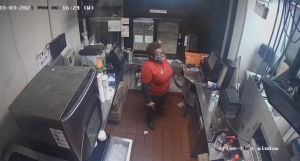Dubai restaurants are no longer required to shield passersby from the sight of food during Ramadan fasting hours, according to authorities in the Gulf emirate, where the Muslim holy month began Tuesday.
“Restaurants in the emirate can choose whether or not to place curtains or cover their facades for serving food during fasting hours,” the Department of Economic Development said in a statement.
“The new circular modifies the practice followed previously in the emirate, which required restaurants and other food outlets serving food during fasting hours to place curtains and screens.”
The emirate depends heavily on tourism and services, which took a severe hit amid the coronavirus pandemic.
The new measure, announced Monday, comes as Dubai seeks to re-energize its economy by opening its doors to tourists and accommodating the 90 percent of its population who are foreigners, many of them non-Muslim.
Dubai, which is part of the United Arab Emirates, is known for its palm-shaped islands, decadent luxury hotels and Instagram-friendly party scene.
It was one of the first destinations to reopen to tourism last year, becoming a magnet for visitors escaping stringent Covid-19 restrictions abroad.
The UAE, considered one of the more open-minded Gulf nations, late last year revamped an array of laws in a social liberalization drive designed to burnish its progressive brand.
The moves included the lifting of a ban on unmarried couples living together, an easing restrictions on alcohol consumption and the decriminalisation of suicide.
The UAE also announced it was toughening sentences for so-called “honour” killings, most victims of which are women seen as having brought shame on their families.
While “honor” crimes were extremely rare and residents seldom prosecuted for cohabiting or drinking without a liquor license, the moves were significant in a tightly controlled but increasingly socially liberal country.






